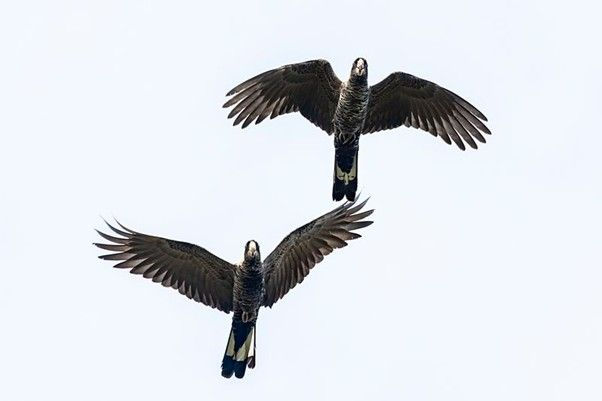Why We Volunteer: Stories from the Heart of Mandurah Wildlife
- Howard Priestley

- Jun 23, 2025
- 3 min read
Updated: Dec 14, 2025

They come for the animals, but stay for the people
Volunteer writer Howard Priestley sits down with Fiona Smith, a dedicated Supervisor at the Mandurah Wildlife Centre, to talk about what it truly means to volunteer. Fiona shares her experiences caring for native wildlife and reflects on the strong sense of community that grows among those working together to protect it.
Has volunteering at Mandurah Wildlife positively impacted your mental health or wellbeing? How so?
Fi: Absolutely it has. Because I am restricted physically, my mental health was really bad, I was in a rut and needed to do something for me, as I’ve always focussed on being a parent. Volunteering gets me out and makes me feel like I’ve really achieved something. When we release an animal back to the wild, we know we’ve done the job well. It’s a huge boost, I feel like we’re doing something right.
Do you feel a sense of connection or camaraderie with other volunteers and staff? Can you describe that community?
Fi: The supervisors have a great bond. We’ve got a solid group of people who work together really well. I know most of the volunteers and everyone says hello, everyone genuinely cares about each other. I really enjoy it.
Do you feel you’re contributing to something greater than yourself? What does that mean to you?
Fi: Absolutely. I’ve always believed in speaking up for those who don’t have a voice, animals and children included. Being a voice for wildlife that’s not being looked after is huge for me. They can’t ask for help. It’s our duty to make sure they are.
In your own words, do you feel like you’re making a real difference here? Can you share a moment that reminded you of that?
Fi: Apparently! (laughs) I love the people aspect and I love teaching. As a supervisor, part of what we do is train people, pass on knowledge. One of my proudest moments was watching a video of Makenzie, a volunteer, skilfully untangling fishing line from a mudlark. I was so proud because I work with her. This job is not just about wildlife, it’s about people, too.
How fulfilling do you find the work and why?
Fi: I’m so passionate about it, not just for the animals, but for the people.
Have you learned new skills since starting as a volunteer here? What are they?
Fi: Absolutely. I’ve learned to recognise diseases quickly. Because we see animals so often, we pick up on signs fast, like PBFD, a highly infectious viral disease which requires quarantine of the bird, and bobtail flu, where the animal might sneeze, have breathing issues or seem lethargic.
Have you discovered something about yourself through volunteering—a strength, a passion, or a perspective you didn’t know you had?
Fi: Definitely. I used to get on my soapbox for kids, but now I’m on it for magpies too! (laughs) I’ve found another thing to be passionate about, and I really believe it helps the community.
What is something new or surprising you’ve learned about wildlife or animal care?
Fi: One of the hardest things I’ve had to learn is not to humanise wildlife. We all want to talk to them, but I’ve learned that distancing myself helps me be more pragmatic about their prognosis. And I’m better at that than I thought I’d be.
What keeps you coming back, even on the hard days?
Fi: Knowing that I actually enjoy it. Even on the bad pain days, being here lets me focus on what needs to be done and put the pain behind me. It’s hard, but it’s absolutely worth it. There’s always someone here to make you laugh, and I love seeing people find their sense of purpose here.
How has volunteering changed the way you see native animals or the environment?
Fi: I’ve always wondered how overseas people live in apartments, but now I think, why can’t we build up instead of spreading out? We’re taking away food sources, and it’s having a massive impact on wildlife.
If someone was thinking about volunteering but wasn’t sure they were ‘qualified’, what would you say to them?
Fi: I wasn’t qualified when I came here! You just have to be willing to learn. If you have an interest in what you’re doing, the passion will come. I started volunteering in October—and I was a supervisor by March.



